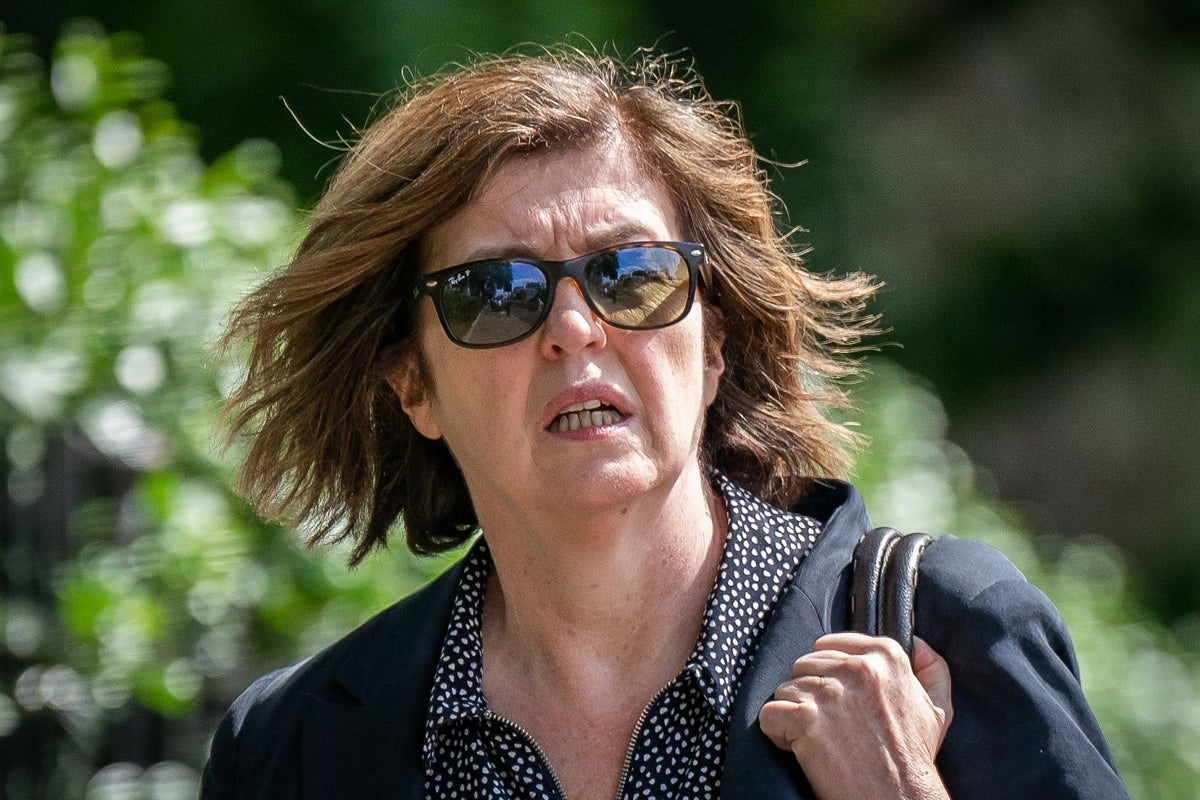
A government inquiry into the departure of senior civil servant Sue Gray to join Labour has been paused after she refused to engage with the probe.
Cabinet Office minister Oliver Dowden said the government would “consider next steps” after Ms Gray “chose not to” make representations as part of the process.
Ms Gray, who led her own Cabinet Office inquiry into allegations of lockdown-breaking parties being held in Downing Street, was offered a job as Labour leader Keir Starmer’s chief of staff in March.
Conservatives have raised concerns that she had been in contact with Labour about the role while she had responsibility for looking into alleged rule-breaking in No 10, prompting the government to launch a Whitehall investigation.
In a statement to the House of Commons, Mr Dowden said the government had made a “confidential assessment” about whether the former Partygate inquiry chair had broken any rules in engaging with the opposition and had forwarded it to the Whitehall anti-corruption watchdog.
But the written statement did not say whether the Cabinet Office deemed her to have broken rules, as had been suggested.
Instead, Mr Dowden pointedly quoted the directory of civil service guidance that says any contact between senior civil servants and leading members of opposition parties should be cleared by ministers.
He also stressed the requirement for “absolute trust” between officials and ministers, while pointing out that her role meant she was considered as being under the “politically restricted” category of the Civil Service Management Code.
In what appeared to be a thinly-veiled dig at Ms Gray, he also said “impartiality and perceived impartiality” of the civil service is “constitutionally vital to the conduct of government”.
The statement came as an expected official report into Ms Gray’s conduct failed to materialise on Tuesday – apparently after intense discussions between cabinet secretary Simon Case and Conservative ministers.
The report would have represented a significant political intervention against a former civil servant, and would have come just days before the local elections when the government is meant to observe so-called “purdah” rules on political impartiality.
After the statement, Tory MP Mark Jenkinson said: “When Sue Gray was in the Propriety and Ethics Team, how might she have reacted to someone who failed to comply with her investigations? What might she have said about ‘Partygate’ witnesses if they’d declined her offer of a chat?”
But a union chief said Ms Gray was prioritising the government’s anti-corruption watchdog investigation – by the advisory committee on business appointments (Acoba) – over the Cabinet Office’s.
Acoba can set recommendations for when senior people leave government, including calling for a cooling-off period to avoid any conflict of interest.
“Sue has a right not to take part in an investigation that’s being conducted under, I think, rather less clear processes,” Dave Penman, leader of the FDA union that represents senior Whitehall staff, told Times Radio.
“Really what she’s concentrating on is Acoba and supplying them with information.”
He stressed that she is no longer being paid by the civil service and is no longer a civil servant. “It doesn’t surprise me that she wouldn’t take part in the process when she’s going through Acoba.
“Acoba is really the real deal when it comes to this and who’s going to make a decision. And it really should be, because it isn’t doing it for political ends. It’s doing it based on evidence, and I can understand why she’d prioritise that.”
Reacting to Mr Dowden’s statement, Tory MP Michael Fabricant, said: “Sue Gray - formerly in charge of ethics in the civil service - has refused to give evidence to the Cabinet Office re her involvement with #Labour.
“#Hypocrisy has become a by-word when it comes to Sue Gray while Keir #Starmer’s silence on this matter is deafening.”
Labour has been approached for comment regarding the government’s claims.
Sir Keir denied on Tuesday that he had held discussions with Ms Gray about employing her while she was investigating his opponent Boris Johnson.
“I’m confident she hasn’t broken any of the rules,” he told the BBC.
Under Whitehall rules, top civil servants are expected to wait a minimum of three months before taking up outside employment.
They are also meant to check with Acoba if they take a job within two years of leaving government. The watchdog can recommend a delay of up to two years in starting a new job, though it has no power to block appointments.
Acoba is yet to make its decision, which will be made separately to the Cabinet Office inquiry triggered by the government.
Ms Gray was deputy permanent secretary in the Cabinet Office from May 2021 to March 2023.
Her Partygate investigation was originally conducted by Mr Case, but he recused himself after reports one of the lockdown-breaking events had been held in his own office.
Her report said there were “failures of leadership and judgment in No 10 and the Cabinet Office” and that many such events “should not have been allowed to happen”.
The report is widely considered to have contributed to the downfall of Mr Johnson’s premiership.







